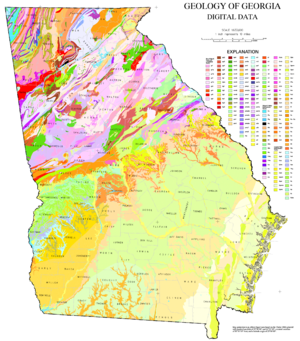Qualitative geography
Moreover, places are not isolated entities and have complex spatial connections, as geography is interested in how an area is positioned relative to all other locations.
Qualitative geography aims to produce rich, detailed accounts of the social and cultural landscapes in which people live.
[16] It may be employed to inform on map practices, or to visualize perspectives and ideas that are not strictly quantitative in nature.
[2][8] To employ interviews in research, geographers typically follow a structured or semi-structured format with questions or topics to guide the conversation.
[8] These questions elicit specific information about the research topic while allowing participants to share their personal experiences and insights.
[8] Geopoetics is a discipline that combines geography and poetry to explore, contextualize, and communicate geographic concepts, research, and phenomena.
[20] Geopoetics can be viewed as a methodology in itself, but is increasingly used as a mixed methods tool to explain the implications of quantitative geographic research and phenomena.
[20][21] Topics addressed by geopoetics often include impacts of the anthropocene, such as climate change and environmental exploitation.
This makes strictly controlling variables, systematic data collection, and analysis procedures challenging.


